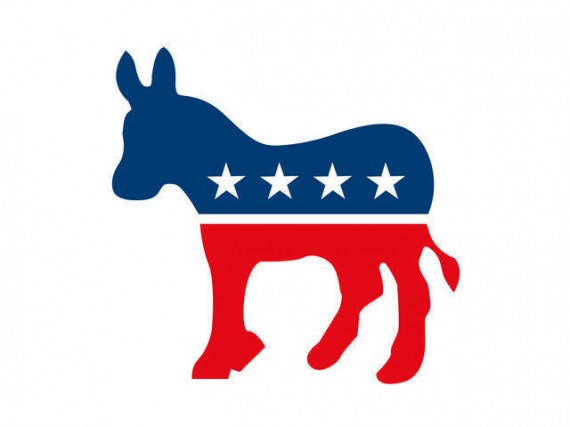DLC: RIP
It really shouldn't be a surprise that that Democratic Leadership Council is on its last legs.
 Ben Smith at Politico reports: Democratic Leadership Council will fold
Ben Smith at Politico reports: Democratic Leadership Council will fold
The Democratic Leadership Council, the iconic centrist organization of the Clinton years, is out of money and could close its doors as soon as next week, a person familiar with the plans said Monday.
The DLC, a network of Democratic elected officials and policy intellectuals had long been fading from its mid-’90s political relevance, tarred by the left as a symbol of “triangulation” at a moment when there’s little appetite for intra-party warfare on the center-right.
Quite frankly I was somewhat surprised to have the DLC even mentioned of late (and that mention only corresponds to the fact that Harold Ford occasionally shows up on MTP and the graphic under his name say “Democratic Leadership Council”).
The original goals of the DLC were to move the Democratic Party more to the center after the Mondale nomination was such a disaster for the party (followed up by the Dukakis nomination). The election of Bill Clinton in 1992 made the DLC, in many ways, superfluous and his re-election in 1996 only reinforced that notion. Indeed, during the Clinton years much of the upper echelons of the Democratic Party itself was heavily influences by DLC thinking. As such, I am not sure that the organization has been especially relevant for almost two decades. Despite what some on the rightward side of things may think, the main Democratic Party is actually a lot more like the centrist DLC than it used to be–much to the chagrin, in fact, of the more progressive wing of the party. As such: mission accomplished in many ways.
Beyond that, the Democratic Party is, even in the wake of defeats in 2010, still in fairly healthy condition insofar as it has been competitive in terms of Congressional elections for the the last several cycles by which I mean demonstrating an ability to win one or both chambers in multiple cycles and it currently holds the White House (and has a reasonable expectation that it’s candidate can win re-election).* As such, the mainline party is not in need of renovation from the outside.
All of this sums to no discernable role for the DLC. As such, adios.
*No doubt many readers will dispute both the notion of a “healthy” Democratic Party in terms of congressional elections as well as the notion that Obama has a decent chance of re-election 2012. All I am saying is that the basic history of the last several elections has shown enough successes to warrant such an assessment. In regards to Obama, history shows that a sitting president has a reasonable expectation of re-election while recognizing that nothing is guaranteed.

I went back and forth with Joyner about this not long ago. In my opinion, “reasonable expectation” overstates things. I don’t feel like running the numbers again, but IMSMR, the odds of a guy winning a second full term in the last 100 years are something like 70/30. Those are quite good odds, sure, but I wouldn’t use a word like “expectation” to describe them.
(Other terms you used such as “can” win and “decent chance of re-election” may actually understate the odds, though)
(also, if you looked at even more recent history, of the last 5 guys to run for re-election there were 3 winners and 2 losers, lowering the odds to 60/40)
From the POV of the party, I would think odds like that would create a “reasonable expectation: of winning. Would you prefer I said “decent odds” instead? I am not 100% sure of your point save that perhaps you don’t like my word choice.
I would argue that it is not just a case of looking at the recent pattern but also evaluating the likely strength of the GOP nominee at this stage of the game and the fact that it does seem the economy is improving, While noting is set in stone (that’s why they play the game, as Chris Berman likes to say), I can’t help but think that Obama has a reasonable expectation of re-election.
test